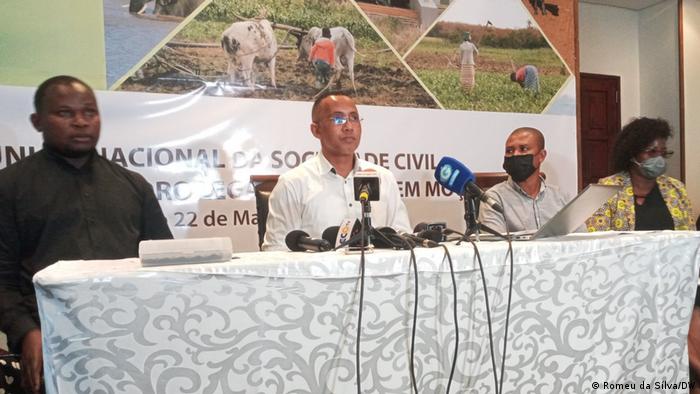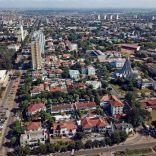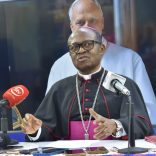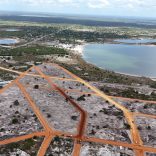Mozambique: New batch of Correios de Moçambique real estate assets is up for sale
Land policy in Mozambique: ‘Peasants still to be heard’

Issufo Tankar, program coordinator at Centro Terra Viva (centre), during a press conference in Maputo. [Photo: DW]
- Mozambican civil society has criticised the revision of the country’s National Land Policy. Several organisations say they have found omissions detrimental to the population which nevertheless benefit big business, and are asking for changes.
Mozambican civil society on Tuesday (22-03) criticised the revision of the National Land Policy as benefiting only big business, mainly to the detriment of peasant communities.
In a press conference, several non-governmental organisations said that, from 2017 to date, the public consultation process has heard only from large entrepreneurs who already have easy access to land.
Most of the population was excluded from the consultation, claims Jamilo Ticane, from the Civil Society Platform in the district of Moma, in Nampula, northern Mozambique. “The process was carried out, but communities were not prepared,” he says.
Women excluded
Rebeca Gomes, a member of the Mozambican Forum of Rural Women, says that the National Land Policy ignores women’s participation in rural development.
“There is nothing involving peasants and rural women in a development process,” she says.

Activist Quitéria Guirengane, from the Women’s Observatory, argues that the land should belong to all and should not fall into the hands of big capital, “while the women and men survive off the land and do not have access to these resources”.
Call for change
Civil society therefore wants to halt the submission of the revision of the National Land Policy to the Council of Ministers.
“We want to draw attention to the need to strengthen the state’s capacity, to comply with legislation and protect the rights of Mozambicans on the right to use and benefit from the land,” president of the Association for Rural Development, Abel Sainda, says.
The current National Land Policy dates from 1995 has been the subject of public consultation across the country since 2017.
But before the review is sent to the Council of Ministers, small farmers can still have their say, stresses program coordinator at Centro Terra Viva, Issufo Tankar.
“What we want is for there to be changes that allow the majority of Mozambicans, that is, the peasantry, women and young people, to use land as a factor for generating wealth,” Centro Terra Viva coordinator Tankar says.
Source: Deutsche Welle












Leave a Reply
Be the First to Comment!
You must be logged in to post a comment.
You must be logged in to post a comment.